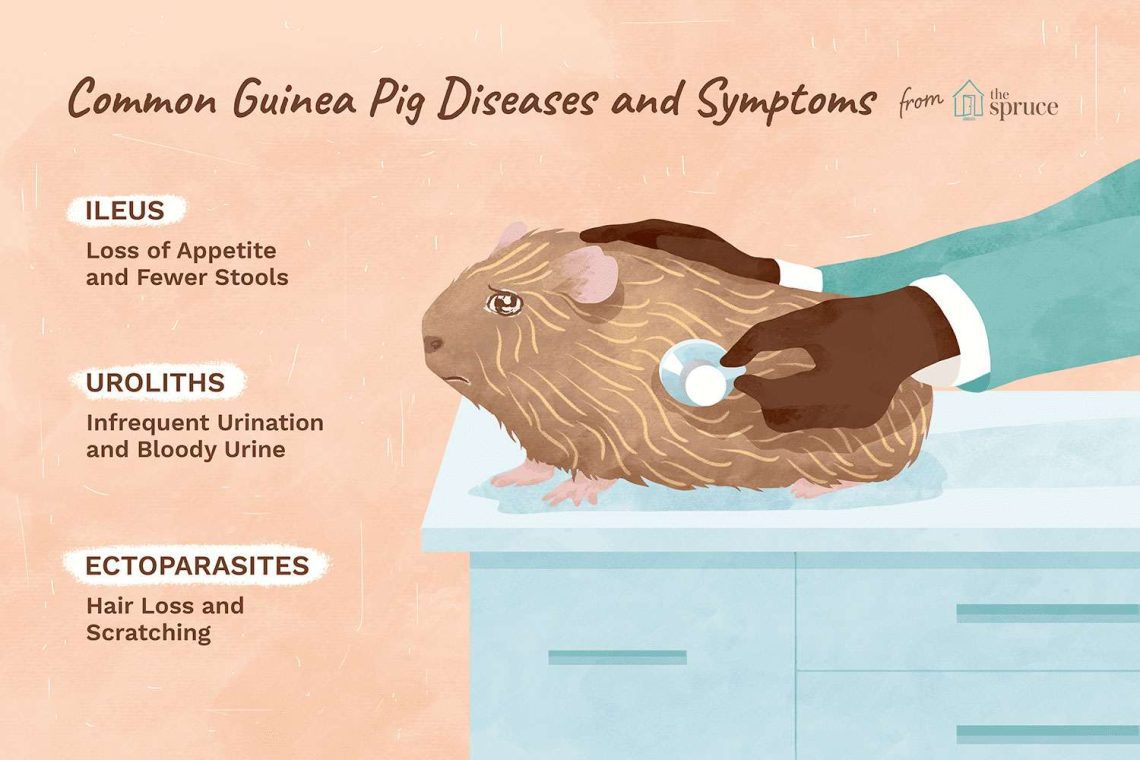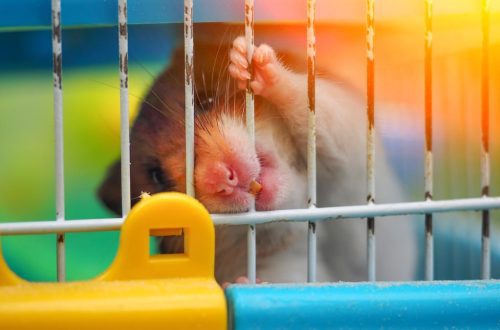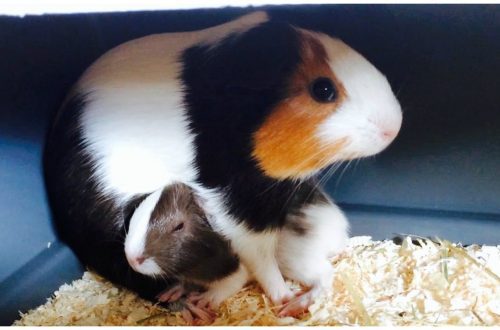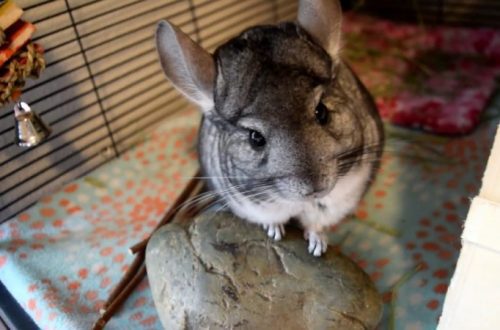
Caring for a sick guinea pig
Correct content. Isolate the sick animal from other guinea pigs by placing it in a separate cage. In infectious diseases, it is necessary to change the bedding frequently, and disinfect the cage and all items in it (see the next section). The cage must be placed in a calm and not too bright place where there is no draft. Do not deprive the guinea pig of contact with your family members, otherwise the animal, in addition to its illness, will also suffer from loneliness.
When in pain, guinea pigs do not make plaintive sounds. Only by looking at the animal, changes in behavior and appearance can one determine how much it suffers. You can help your pet if you take care of it and properly care for it.
Drink. A sick animal must necessarily consume liquid, otherwise its body will be dehydrated. Water or tea should be slowly poured in drops from the side into the cheek pouch using a syringe without a needle. To prevent the animal from choking, from time to time the syringe should be removed and the animal slightly tilted back. The syringe must be inserted from the side into the cheek pouch
Disinfection cells. Oranex all-purpose cleaner made from orange oil works well as a mild disinfectant. This remedy is used undiluted or slightly diluted, has a pleasant smell and, as practice has shown, is absolutely harmless to animals. It is sold in pet stores.
Applying ointment. For small wounds, carefully trim the fur around the wound and apply calendula ointment to the wound.
First cut your hair, then carefully treat the wound
Eye treatment. If the mucous membrane of the eye is swollen, treat the corner of the eye three to four times a day with chamomile infusion (10 drops per glass of warm water), gently touching with a swab. Keep the animal indoors with dim light during the treatment period.
Measures in case of allergies. If your veterinarian has determined what your guinea pig is allergic to, you can take appropriate action.
- If it’s a hay allergy, put no more hay in the feeders than the animal can eat in a day.
- If you are allergic to bedding, try using biological bedding (commercially available at pet stores).
- When it comes to allergies to certain plants, such as lettuce, of course, they should not be given to the animal as food. Consider whether it would be better to remove any “harmful plants” from the enclosure.
The return of strength to weakened animals. A recently recovered but still malnourished guinea pig should be given plenty of herbal green food, vitamins, oatmeal, and wheat germ. As often as possible, give the animal the opportunity to walk in the fresh air, but do not allow the animal to overwork or catch a cold in the draft. Consult your veterinarian about injecting vitamin or stimulant medications. When breeding guinea pigs, such measures are undesirable.
Before and after surgery. A healthy guinea pig tolerates surgery, in particular castration, very well. A week before the operation, give the animal daily vitamin C, because due to the lack of this vitamin, it will take up to 4 hours for the animal to wake up after anesthesia. Do not feed the animal 12 hours before the operation. During the operation, the guinea pig becomes very cold, so after the operation, keep the animal warm for several days, for example, under a lamp. You can feed the animal only 12 hours after the operation, while it is advisable to give him the best food in order to speed up the healing process.
Correct content. Isolate the sick animal from other guinea pigs by placing it in a separate cage. In infectious diseases, it is necessary to change the bedding frequently, and disinfect the cage and all items in it (see the next section). The cage must be placed in a calm and not too bright place where there is no draft. Do not deprive the guinea pig of contact with your family members, otherwise the animal, in addition to its illness, will also suffer from loneliness.
When in pain, guinea pigs do not make plaintive sounds. Only by looking at the animal, changes in behavior and appearance can one determine how much it suffers. You can help your pet if you take care of it and properly care for it.
Drink. A sick animal must necessarily consume liquid, otherwise its body will be dehydrated. Water or tea should be slowly poured in drops from the side into the cheek pouch using a syringe without a needle. To prevent the animal from choking, from time to time the syringe should be removed and the animal slightly tilted back. The syringe must be inserted from the side into the cheek pouch
Disinfection cells. Oranex all-purpose cleaner made from orange oil works well as a mild disinfectant. This remedy is used undiluted or slightly diluted, has a pleasant smell and, as practice has shown, is absolutely harmless to animals. It is sold in pet stores.
Applying ointment. For small wounds, carefully trim the fur around the wound and apply calendula ointment to the wound.
First cut your hair, then carefully treat the wound
Eye treatment. If the mucous membrane of the eye is swollen, treat the corner of the eye three to four times a day with chamomile infusion (10 drops per glass of warm water), gently touching with a swab. Keep the animal indoors with dim light during the treatment period.
Measures in case of allergies. If your veterinarian has determined what your guinea pig is allergic to, you can take appropriate action.
- If it’s a hay allergy, put no more hay in the feeders than the animal can eat in a day.
- If you are allergic to bedding, try using biological bedding (commercially available at pet stores).
- When it comes to allergies to certain plants, such as lettuce, of course, they should not be given to the animal as food. Consider whether it would be better to remove any “harmful plants” from the enclosure.
The return of strength to weakened animals. A recently recovered but still malnourished guinea pig should be given plenty of herbal green food, vitamins, oatmeal, and wheat germ. As often as possible, give the animal the opportunity to walk in the fresh air, but do not allow the animal to overwork or catch a cold in the draft. Consult your veterinarian about injecting vitamin or stimulant medications. When breeding guinea pigs, such measures are undesirable.
Before and after surgery. A healthy guinea pig tolerates surgery, in particular castration, very well. A week before the operation, give the animal daily vitamin C, because due to the lack of this vitamin, it will take up to 4 hours for the animal to wake up after anesthesia. Do not feed the animal 12 hours before the operation. During the operation, the guinea pig becomes very cold, so after the operation, keep the animal warm for several days, for example, under a lamp. You can feed the animal only 12 hours after the operation, while it is advisable to give him the best food in order to speed up the healing process.





